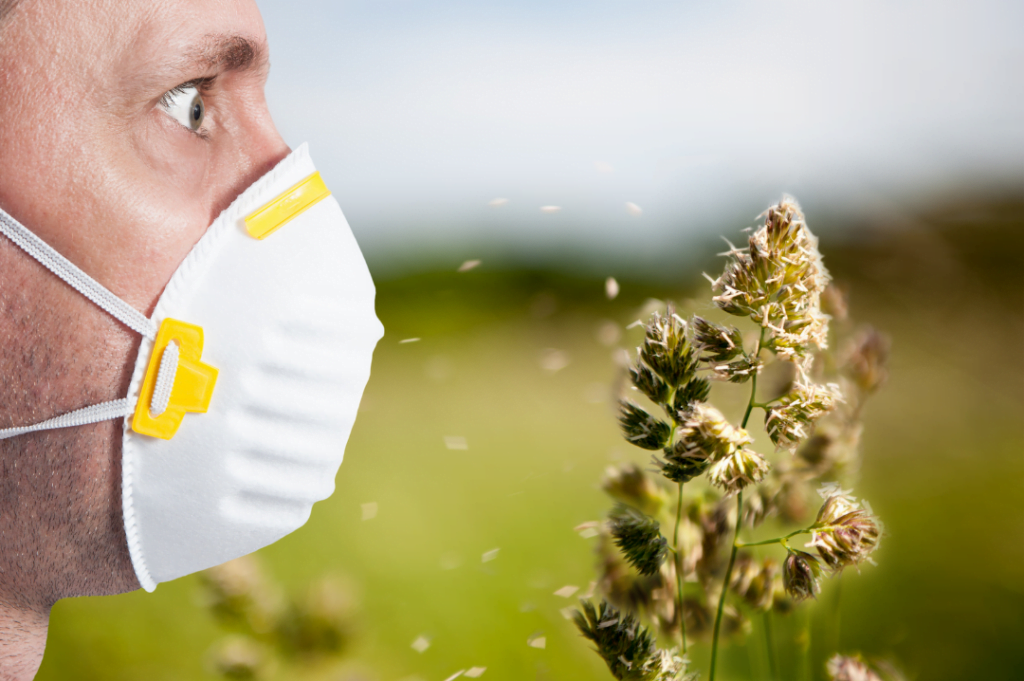Seasonal allergies are a common problem in Canada. The most common allergic reaction is known as hay fever (or Allergic Rhinitis). The season for hay fever in Canada can extend from April to October. It is characterized by sneezing, a runny nose, and itchy, watery eyes. Hay fever can also cause itchy skin, taking the form of red patches or skin rashes. Seasonal allergies can also cause asthma attacks and worsen existing respiratory conditions.
Several things can trigger seasonal allergies, including pollen from trees, grasses, weeds, mould spores, and dust mites. Pollen is the most common trigger of seasonal allergies in Canada. Trees, such as birch, cedar, and oak, release pollen into the air in the spring. Grass can also cause seasonal allergies. Grasses, such as Timothy, rye, and orchard, release pollen in the summer. And weeds, such as ragweed, release pollen in the fall.
Mould spores are another common trigger of seasonal allergies. Moulds are fungi that grow in moist environments, such as in leaves, soil, and rotting wood. They release spores into the air, triggering hay fever and asthma.
Dust mites are tiny creatures that live in dust. They are a common asthma trigger and can also worsen hay fever symptoms. Dust mites are most often found in bedding, carpets, and upholstered furniture.
Seasonal allergies (whether they are spring or late summer allergies) can be a nuisance; however, there are nine different things you can do to reduce your exposure to allergens and relieve your symptoms:
1. Know your triggers. If you’re not sure what’s causing your allergies, keep a diary of your symptoms and when they occur. This can help you and your doctor figures out what’s triggering your allergies.
2. Avoid your triggers. Once you know your triggers, try to avoid them as much as possible. If you’re allergic to pollen, stay indoors on days when the pollen count is high. You can check the pollen count for your area at the Aerobiology Research Laboratories, and there are some in-depth data on the Canadian Pollen Monitoring Network website. If you’re allergic to dust, use a dust mask when cleaning or vacuum with a HEPA filter. You can also use a HEPA filter in your home and a car ventilation system to trap allergens.
3. Take medication. If avoiding your triggers isn’t possible or isn’t enough to relieve your symptoms, you may need to take medication. Over-the-counter antihistamines can help relieve sneezing, itching, and runny nose. If your symptoms are more severe, your doctor may prescribe a stronger medication.
4. Wear a mask. During the peak times of COVID-19, most local Canadian governments recommend (or even mandate) the public to wear masks indoors. If you suffer from allergies, you can do the same trick outdoors. You may not need a high-grade N95 mask (although it is better). A surgical mask may be good as well.
You can ask Ogden Pharmacy‘s pharmacists about our selection of N95 and surgical masks. Our pharmacy in Calgary offers special discounts for residents of Riverbend and Ogden communities.

5. Get immunotherapy. If your allergies are severe and medication doesn’t help, you may want to consider immunotherapy. This treatment involves getting shots or taking pills that contain the substances you’re allergic to. Over time, this can help your body build a tolerance to those substances and reduce your allergy symptoms.
6. Stay cool and dry. Heat and humidity can make allergy symptoms worse. To stay comfortable, dress in light, loose-fitting clothing and stay in air-conditioned areas when it’s hot outside. And when it’s humid, use a dehumidifier in your home.
7. Watch the weather. Allergy symptoms can be affected by the weather. Pollen counts are usually highest in the morning, so you may want to stay indoors then. And if it’s been raining, mould spores may be high in the air, so it’s best to stay inside.
8. Keep your home clean. Vacuum regularly and dust with a damp cloth to reduce allergens in your home. Keep windows and doors closed, and use air conditioning in your home and car. Shower and change your clothes after being outdoors—clean surfaces in your home that collect dust, such as floors, carpets, and upholstered furniture. Wash bedding in hot water to kill dust mites. And if you have pets, bathe them often to reduce the amount of pet dander in your home.
9. Seek medical help if needed. If your allergy symptoms are severe and you’re having trouble managing them, make an appointment with an allergist. He or she can help you find the best way to manage your allergies and provide relief.
If you still have symptoms, you can talk to your doctor about medication. Several types of medication can help, including antihistamines, decongestants, and corticosteroids. Allergy shots are also an option for some people.
Our pharmacist at Ogden Pharmacy (Calgary, AB) can also help you relieve lots of allergy symptoms using over-the-counter medicines. He or she can recommend different types of allergy relief medications such as Option+ Allergy Relief, Benadryl, NeilMed (Sinus Rinse), Flonase, Nasonex, Claritin, and REACTINE.






